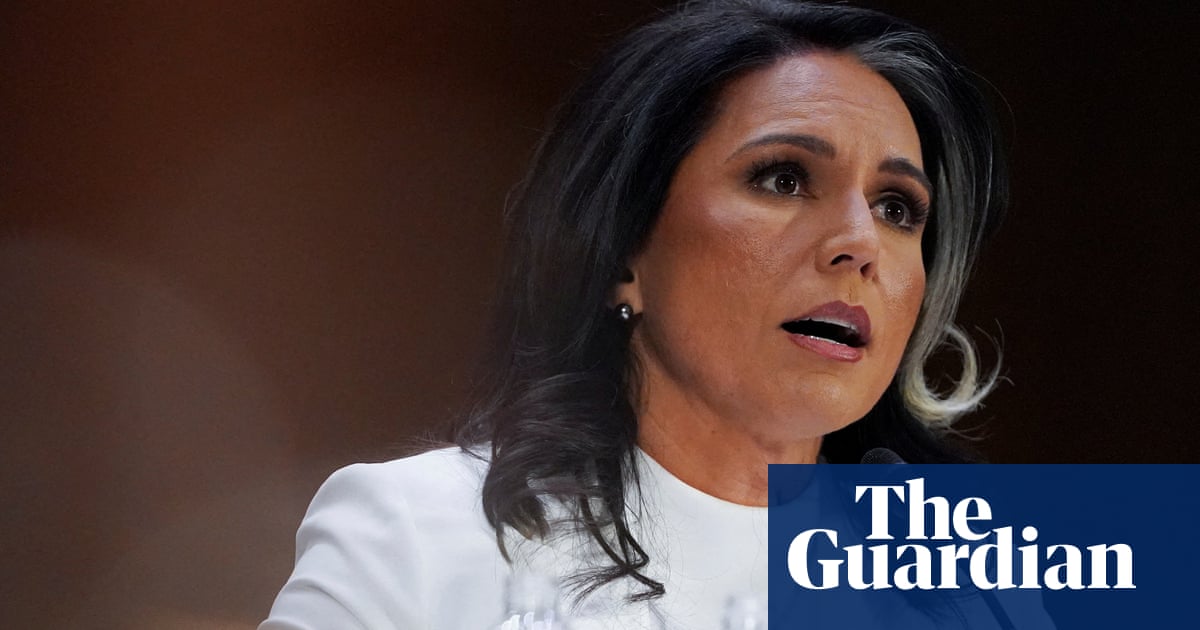Donald Trump’s executive order attacking transgender youth healthcare has unleashed chaos inside medical institutions across the country, with providers forced to cancel vital treatment and facing threats to their careers and clinics as they fight to serve their patients.
The president’s 28 January policy declared federal funding should be revoked from centers that provide gender-affirming care, including hormone therapy and puberty blockers, to youth under the age of 19. While the majority of trans healthcare providers have maintained services, institutions in New York, Colorado, Virginia, California and Washington DC announced immediate pauses on youth treatment.

Doctors, nurses and other medical staff who specialize in gender-affirming care have been forced to have agonizing conversations with families losing appointments and are increasingly fearful of professional and personal consequences for their advocacy, according to Alex Sheldon, executive director of GLMA, a national association of roughly 1,000 medical providers that advocates for LGBTQ+ health equity.
“Health professionals enter the field to save lives, and now they’re being forced to choose between their patients and their own livelihoods,” Sheldon said.
GLMA is a plaintiff alongside trans youth and their families in a lawsuit challenging Trump’s order as unconstitutional, discriminatory and a violation of parental rights. The treatments targeted are part of established standards of care supported by all major US medical associations. Fewer than 0.1% of US minors are trans and receive gender-affirming treatment, according to one recent study, but for those who do, the care is considered life-saving, linked to reduced depression and suicidality.
The Guardian spoke with Sheldon about the fallout from Trump’s order among healthcare professionals and how providers are resisting the directive.
This conversation has been edited and condensed for clarity.
What kinds of calls have you been receiving about the order?
My phone hasn’t stopped ringing. Providers are terrified for their patients and terrified they could lose their ability to practice healthcare simply for providing the same care they’ve always provided. Hospital administrators are scrambling to interpret vague, politically motivated directives while trying to protect their staff and institutions. Many feel the weight of a threat that by providing care to one small population, they could lose the funding that allows them to keep their doors open for all patients. I’ve heard from parents who are just in absolute despair and extreme distress, asking where to go next. And I’ve heard from trans and non-binary community members who are exhausted from fighting for their basic right to exist and are now being told yet again that their health and wellbeing are up for debate. The chaos is just unrelenting and the fear is palpable.
At institutions that have paused treatment, how are patients and staff responding?
I’ve connected with many providers forced to cancel long-awaited appointments for their patients. They describe those experiences as simply excruciating. There’s an unbearable weight of seeing a young person in distress, knowing exactly what treatment would ease their suffering, and being absolutely powerless to provide it. One provider said it was like withholding CPR from someone struggling to breathe. We know the treatment is safe and effective, supported by decades of research. Providers are watching their patients’ pain deepen, knowing the pain is unnecessary. They’re receiving so many calls from patients expressing increasing amounts of distress and suicidality. One provider had to cancel an appointment for a young trans girl who had just relocated to the state. Her mom said: “If my child doesn’t survive this, it’s your fault.” Some providers are trying to soften the blow and help patients transfer care. But under some interpretations of this cruel executive order, they’re not even sure they’re allowed to refer patients. So they have to choose whether to comply with an institution’s interpretation and pause care, risking the health of their patients, or they can refuse to comply and possibly lose their livelihood. It’s such an impossible decision.
What advice do you give providers wanting to continue this care but told they cannot?
One provider said that every care decision they make now feels like a legal and ethical minefield. In the same way we now ask our elementary school teachers to serve as armed guards, we’re requiring that health professionals act as constitutional scholars interpreting multilevel policies that govern their work. That’s just so taxing. The best advice we’re able to provide at this time is stay connected to networks of providers facing these challenges and work together to advocate for this care. Many providers are choosing to fight, thankfully, and they are seeking so many creative ways to continue care. I also always tell our members to remember why they entered into the profession, because the heartbreak is overwhelming. They didn’t get into the field to be activists, they got into the field to save lives. So our advice is to continue to use your voice to advocate for your patients.
How are patients maintaining their care? I know in some states with bans, families were forced to stockpile medications – are you hearing similar responses now?
There’s something intrinsic in the LGBTQ+ community about community care – providing care to one another when we’re faced with restrictions and not recognized. That’s why GLMA was founded in the early 1980s, as a response to the emerging HIV/Aids crisis and deliberate erasure and inaction by the federal government. LGBTQ+ professionals came together to utilize their expertise and lived experience to make sure our community was cared for. I see that same community-mindedness coming up now among patients and providers, who are actively building coalitions so we’re not leaving anyone behind. But the fear is very real, and I’ve heard from many patients and families considering leaving the country. Some have already left their home states due to bans. Now, moving to a new state no longer ensures you can maintain access to care.
What risks are providers facing when they engage in advocacy?
Many providers have spent years advocating for their trans patients. They say that still feels like their calling, but they’re describing a newfound, constant anxiety of being under extreme scrutiny. There’s a threat of lawsuits, professional complaints and personal harassment that have become a daily part of many providers’ lives. They’ve seen colleagues step back and hospitals distance themselves from the care, yet they’re still fighting. Some face potential job loss. Others worry about having their medical license reviewed. In Texas last year, gender-affirming care providers were sued by the state’s attorney general. So there’s already been this sense of fear and government overreach. But providers know what’s at stake – their patients’ lives are on the line. Health professionals are uniquely well-positioned to push back against these attacks, because they are the experts. No politician understands this care better than doctors, nurses and therapists who dedicated their careers to it. Many feel a responsibility to make sure their patients aren’t being used as political scapegoats.
Are providers facing pressure not to advocate for their trans patients?
I spoke with a physician with over 20 years of experience who is being pressured to step back from a role in a hospital’s gender-affirming care clinic, not because that care is unsafe or isn’t medically necessary, but because the hospital is worried this provider could lose their ability to practice medicine, because that is what the federal administration has threatened.
But it’s important to remember that the majority of institutions are standing firm and continuing to provide medical care for trans young people. I’m very encouraged by administrators, legal departments and providers who understand the chaos, fear and threats are purposeful. They know there are existing legal frameworks that protect access to this care in many states and at the federal level. The executive order isn’t law. So they refuse to let fear dictate patient care. In the institutions continuing care, there’s a real palpable sense of pride. Providers are working longer hours, rallying around their patients and doing everything they can to ensure care continues. Others are prepared to fight in court, because they know they are a lifeline to patients.
Are there other ways the order is impacting institutions?
There are states that previously restricted care for trans minors, and the executive order is attempting to expand those restrictions to anyone under the age of 19, meaning 18-year-olds could now be restricted. One provider in a state with a ban said his hospital’s decision to pause care for 18-year-olds came so quickly that no one in his department even knew. His care team didn’t understand why they had to cancel an appointment. It’s like experiencing whiplash every day. There’s a massive amount of confusion. We’ve also been hearing that in the handful of institutions pausing care, sometimes they’re moving so quickly that directives from administrators aren’t even in writing. They’re calling providers individually and saying you need to cancel this care – it’s like a game of telephone, and they’re the ones who have to relay that information, however partial or incomplete it is, directly to their patients.
What should people know about the efforts to challenge this order?
It’s so important to remember that this type of care has remained perfectly legal for cisgender patients. [Doctors can still prescribe testosterone to cis boys with delayed puberty, or use testosterone suppression for cis girls with conditions causing excess facial hair, for example.] That speaks most clearly to the cruel nature of these restrictions. It’s not about safety. It’s not about efficacy. It is simply discrimination. They are targeting a population of patients, not a type of care.
And this is not how medicine is supposed to work. You’re not supposed to be criminalized for doing your job in accordance with standards of care that have been backed by decades of research.

 German (DE)
German (DE)  English (US)
English (US)  Spanish (ES)
Spanish (ES)  French (FR)
French (FR)  Hindi (IN)
Hindi (IN)  Italian (IT)
Italian (IT)  Russian (RU)
Russian (RU)  2 hours ago
2 hours ago
























Comments